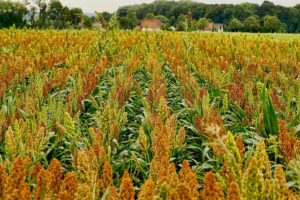Applications
- Efficient pretreatment of a wide range of lignocellulosic feedstocks. Including agricultural residues, wood, and tropical fibers
- Bio-based chemical and biofuel production, including sustainable aviation fuel from renewable plant materials
Advantages/Benefits
- Higher efficiency of sugar release from diverse feedstocks
- Improved solvent recovery and reusability
- Versatile across diverse biomass types without major process adjustments
- Simplified process with no need for specialized equipment
Background
Current biomass pretreatment methods are often complex and expensive, involving lengthy washing or other costly recovery techniques. The need for a more effective, versatile, and scalable solution is essential in biofuel and sustainable product production. This invention offers a simpler and more cost-effective alternative using amine-based solvents that provide high levels of sugar release and solvent recovery. The process has proven effective on a range of feedstocks.
Technology Overview
Researchers at Berkeley Lab have developed a novel class of amine-based solvents for biomass pretreatment, offering versatility and effectiveness across a broad spectrum of lignocellulosic feedstocks. These distillable solvents efficiently break down various biomass types, including agricultural residues (e.g., rice hulls, hay, and sorghum), sawdust, and tropical fibers (palm, coconut), into fermentable sugars.
This innovation supports a feedstock-agnostic pretreatment process, eliminating the need for complex washing procedures. Initial testing with the butylamine solvent has shown solvent recovery rates of over 95%, along with significant sugar yields – more than 90% for glucose and over 80% for xylose. The pretreatment process has been successfully scaled up from laboratory to larger reactor systems, highlighting its potential for large-scale biofuel production and sustainable aviation fuel applications. Ongoing research efforts are focused on scaling the process for widespread use in commercial biorefineries.
Development Stage
Proof of Concept
Principal Investigator(s)
- Anagha Krishnamoorthy
- Xueli Chen
- Joseph Palasz
- Venkataramana R. Pidatala
- Blake A. Simmons
Status
Patent pending
Opportunities
Available for licensing or collaborative research
